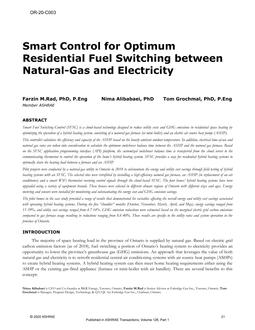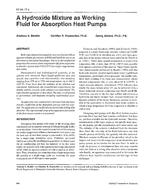In recent years radiant systems have become more and more popular in new buildings and renovations. Quite often the structures embedding the pipes exhibit high thermal capacity—this option has been increasingly used in central and northern Europe for large multi-story buildings, since it allows different interesting strategies of control, involving peak-load-shaving by delayed energy supply. However, in this case comfort conditions should be carefully taken into account, since a certain drift of the internal conditions over the day usually takes place. In this regard, suitable computer simulations can be very profitable for predicting energy performance as well as comfort conditions. A mathematical model based on a detailed thermal balance of a set of rooms with interposed thermal slabs has been recently developed, based on transfer functions for unsteady heat conduction. In this paper, the limits of applicability of these systems are discussed taking into account different types of building envelopes and different climatic conditions.
Units: SI
Citation: Symposium, ASHRAE Transactions, vol. 109, pt. 2, Kansas City, 2003
Product Details
- Published:
- 2003
- Number of Pages:
- 10
- File Size:
- 1 file , 2.2 MB
- Product Code(s):
- D-20870


